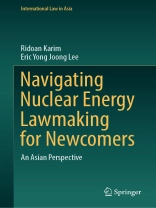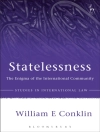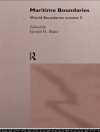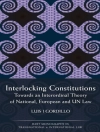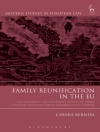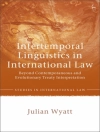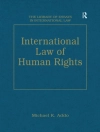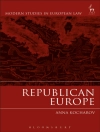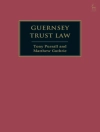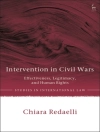This book provides a comprehensive overview of the legal and regulatory framework for the nuclear industry from an Asian perspective. It includes information on the history of nuclear lawmaking, the key international treaties and agreements that govern the use of nuclear energy, the role of national and regional regulatory bodies, and the legal and policy issues that arise in the development and operation of nuclear power plants. The book also covers topics such as nuclear safety, security, waste management, environmental protection, and liability for nuclear accidents. Additionally, it provides insights into the legislative process and the various stakeholders involved in nuclear lawmaking, such as industry, government, and civil society organizations. The overall goal of this book is to provide a detailed and up-to-date understanding of the legal and regulatory framework for the nuclear newcomers, particularly in Asia, and to help readers navigate this complex and dynamic field.
The book is also used as a guide for all nuclear energy-producing countries, lawmakers, students, researchers, or even for general readers to understand the perspectives of international nuclear energy law.
Cuprins
Chapter 1: Introduction.- Chapter 2: Brief History of Nuclear Energy: Lessons on Regulation.- Chapter 3: Revisiting the Energy Option for Future: Prospects & Challenges.- Chapter 4: International Nuclear Law: Scope & Objective.- Chapter 5: Nuclear Safety and Security Regime.- Chapter 6: International Environmental Law Principles and Cases Relevant to Nuclear Energy.- Chapter 7: Nuclear Liability Regime.- Chapter 8: Nuclear Non-Proliferation Regime and Safeguards.- Chapter 9: Legal Gaps in the International Nuclear Laws and Lessons for New Nuclear Energy Producing Countries.- Chapter 10: Conclusion.
Despre autor
Ridoan Karim is a lecturer at the Department of Business Law & Taxation, School of Business, Monash University Malaysia. He has taught and researched in the fields of business and international trade law. Prior to joining the Department of Business Law and Taxation of Monash University Malaysia, Ridoan was a full-time lecturer for more than three years at the School of Business Administration, East Delta University, Bangladesh. Being a passionate researcher and academic, Ridoan has widely published in peer-reviewed journals and presented papers in several national and international conferences in his areas of interest, i.e., ‘legal and regulatory aspects of energy’, ‘science, technology and law’, ‘privacy and data protection law’, and ‘Asian and comparative law’, etc. Ridoan had acted as a consultant and fellow in projects funded by the University of Malaya, Malaysia. Ridoan Karim holds a Doctor of Philosophy (Ph.D.) from University of Malaya, Malaysia. He also obtained a Master of Business Administration (MBA) from the University of Chichester, UK, a Master of Comparative Laws (MCL) from International Islamic University Malaysia (IIUM), and a Bachelor of Laws (LLB) from Brac University, Bangladesh.
Eric Yong Joong Lee is the president of YIJUN Institute of International Law as well as a professor of International Law at Dongguk University, Seoul, Korea. He also served as a high and foreign expert of State One Thousand Talent Plan of China teaching and researching at Shanghai University of International Business and Economics. Dr. Lee obtained his A.B. (political science) and M.P.A. (public policy) from the University of Washington and Seoul National University, respectively. Then, he continued to study international law at Leiden University for LL.M. and completed his Dr.iur. under the supervision of Professor Peter Malanczuk at Erasmus University Rotterdam, The Netherlands. Professor Lee, an analyst of international law based on international relations, is an expert of international organization, international dispute settlement, and inter-Korean relations. His current academic interests focus on the Korean Peninsula peace process, transnational cultural diplomacy, global supply chain of Covid-19 vaccine, etc.
